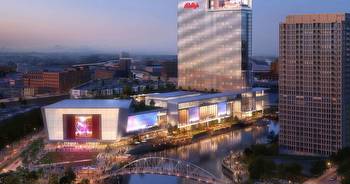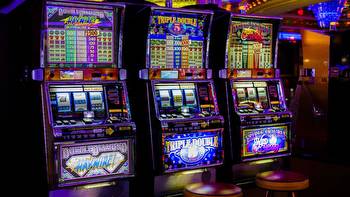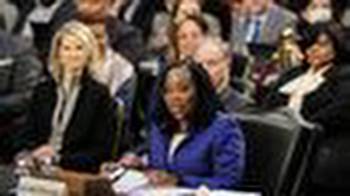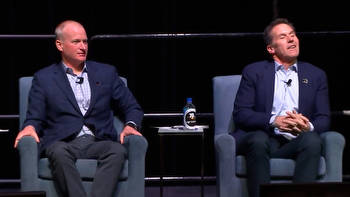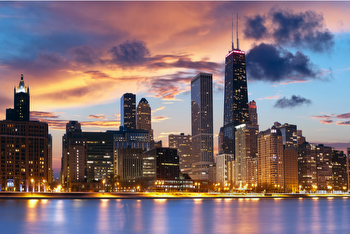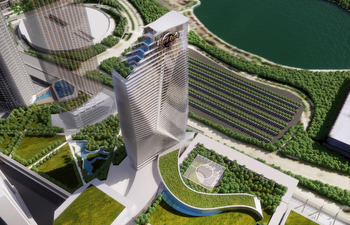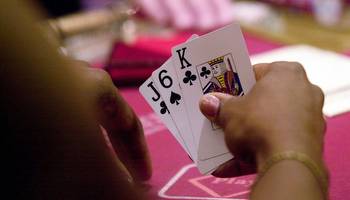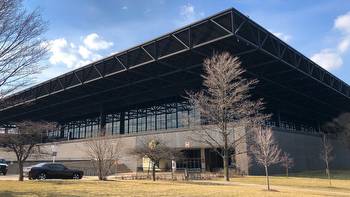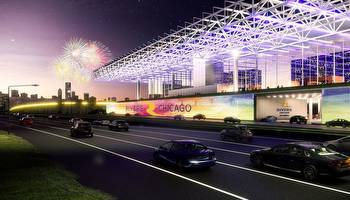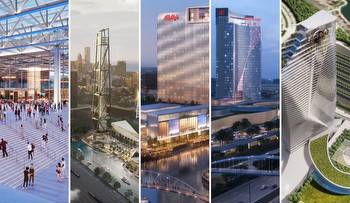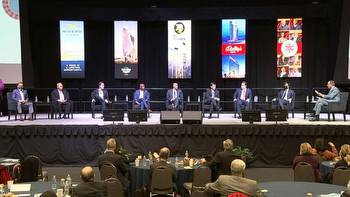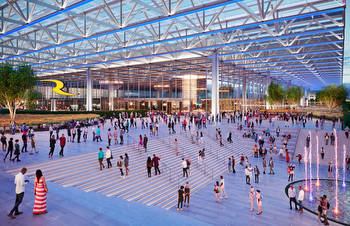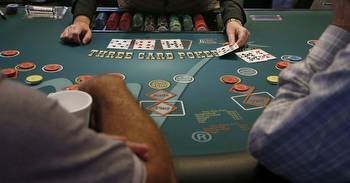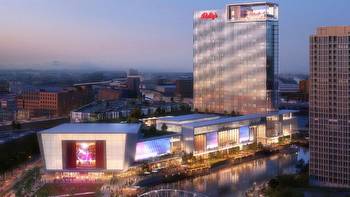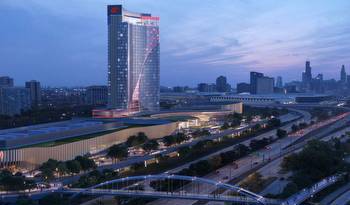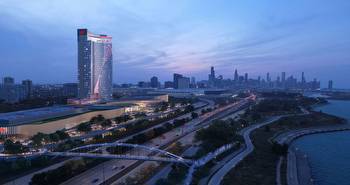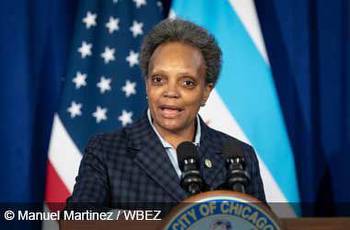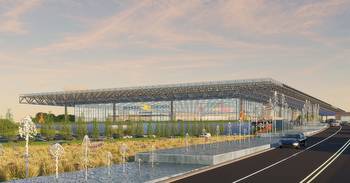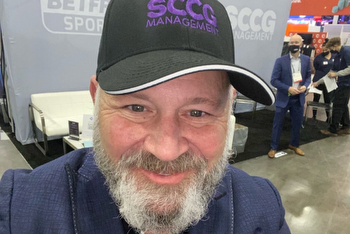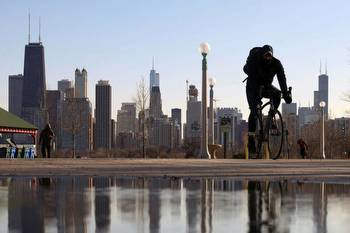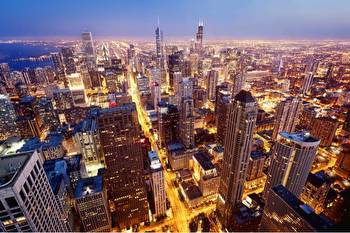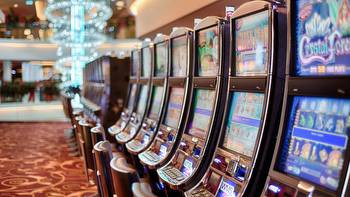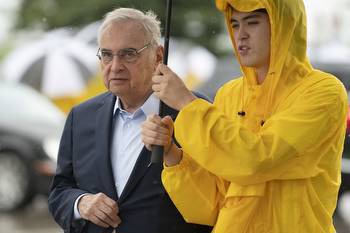Five bids submitted for Chicago casino, from Hard Rock, Bally’s and Rush Street Gaming
Mayor Lori Lightfoot’s Chicago casino game will be five-card draw.
Lightfoot’s office on Friday announced the city received five proposals from a total of four development groups looking to build and operate the big-city mega-casino that city officials have been trying to land for decades.
After pushing back the original summer bidding deadline — a move that suggested lukewarm industry interest in a highly taxed downtown gambling temple — the city identified the contenders as Rhode Island-based gambling company Bally’s Corporation, Florida-based gaming giant Hard Rock International, and two separate groups with proposals spearheaded by Chicago casino magnate Neil Bluhm’s Rush Street Gaming.
Bally’s submitted two separate proposals.
No wild cards were among the competing developers’ chosen sites, proposing projects at or near McCormick Place, the vacant South Loop site known as “the 78” and the Chicago Tribune’s Near North Side publishing plant.
Lightfoot said in a statement that she was “thrilled” with the hand she was dealt.
“The submission of bid responses represents a major step toward the thoughtful development of a casino-resort that uplifts our businesses, employs and empowers our residents and encourages tourism. We look forward to the next phase of discussions to bring this world-class entertainment experience to our city,” she said.
Bluhm’s company signaled it was all in on a Chicago proposal last month when it pulled out of the running for another new casino slated to break ground in Waukegan. But Friday’s turning of the cards revealed Bluhm’s Rush Street Gaming is behind two development groups with names that tip their hand on where they’d like to break ground: Rivers Chicago at McCormick LLC, and Rivers 78 Gaming LLC.
McCormick Place has long been considered a viable casino site, while analysts have floated “The 78” as fertile gaming ground in the 62 vacant South Loop acres near Roosevelt Road and Clark Street.
A Rush Street spokesman did not have any immediate comment.
Lightfoot has left the politically thorny question of where to put the casino up to the potential developers .
Bluhm has long been considered a shoo-in to apply for the city casino license, given his success running the state’s most lucrative gambling mecca, Rivers Casino in Des Plaines — in addition to his close ties to the mayor. Lightfoot has received more than $200,000 in campaign contributions from Bluhm’s daughter Leslie and her sister Meredith Bluhm-Wolf.
Hard Rock’s bid as HR Chicago LLC comes about nine months after the corporation received the Illinois Gaming Board’s OK to break ground on another casino in Rockford – and about five months after it opened a casino in Gary, Indiana, not even an hour’s drive from Lightfoot’s City Hall office.
The Rockford Hard Rock, endorsed by legendary Cheap Trick guitarist Rick Nielsen, won approval despite the fact state regulators have considered disciplinary action against another company owned by one of the project’s lead investors.
The city did not disclose the full list of potential investors in each project. Hard Rock representatives did not return messages seeking comment.
Bally’s, which last month took control of the former Jumer’s Casino in Rock Island, submitted two proposals for two different potential sites: one at the Near North site of the Chicago Tribune publishing center near Chicago Avenue and Halsted; and another at the McCormick Place truck marshaling yard south of the sprawling convention center.
Both proposals call for $1.6 billion investments that include a luxury hotel, indoor and outdoor entertainment center, green space and fine dining.
In a press release, the group said minority investors have a total stake of 25%, with investors including “philanthropists, business owners, sports stars, celebrities, and everyday Chicagoans.”
“This property will be built, owned, and operated by Chicagoans, with a focus on minority and women investors, contractors, suppliers, consultants, and employees,” Bally’s chairman Soo Kim said. “It will generate tax revenue, create good-paying jobs, and attract international, national, and local visitors for generations to come.”
The courting of casino developers marks a victory for Lightfoot in what has been a tumultuous first term on the fifth floor of City Hall.
In 2019, she did what her two mayoral predecessors could not when state lawmakers created the Chicago casino license as part of a massive gambling expansion.
But after a state-hired gambling consultant deemed the 72%-effective tax rate on the Chicago casino “too onerous” for any potential to turn a profit, Lightfoot’s team had to go back to Springfield last spring to secure legislative support to lower the tax rate to about 40%.
That was still too rich for the blood of some Las Vegas industry heavyweights such as MGM Resorts International, Wynn Resorts and Caesars Entertainment, where executives announced they’d take a pass on the city’s formal request for proposals that was issued in April.
The city’s cut of revenue from the 4,000-position casino will be earmarked for its desperately underfunded police and firefighter pensions.
With five bids in hand, Lightfoot’s office said it will create “a review committee made up of a cross-section of City departments” to recommend a bidder. Lightfoot will have the final call on who’s put up for City Council approval.
The Illinois Gaming Board has the final say on issuing a license. The mayor has said she expects the finished casino-resort to open by 2025, though an operator can set up shop at a temporary site once the developer gets state approval.
There are already 10 casinos operating in Illinois and five more in the pipeline, not to mention four more operating in northwest Indiana, including the Horseshoe Hammond that’s a half-hour drive from City Hall. That’s all on top of more than 40,000 slot machines operating in bars, restaurants and other establishments across Illinois.
City officials have contended there is room to “grow the pie,” or increase the size of the gaming market, with what they call “a once-in-a-generation opportunity for a casino operator in the heart of a major American city.”








